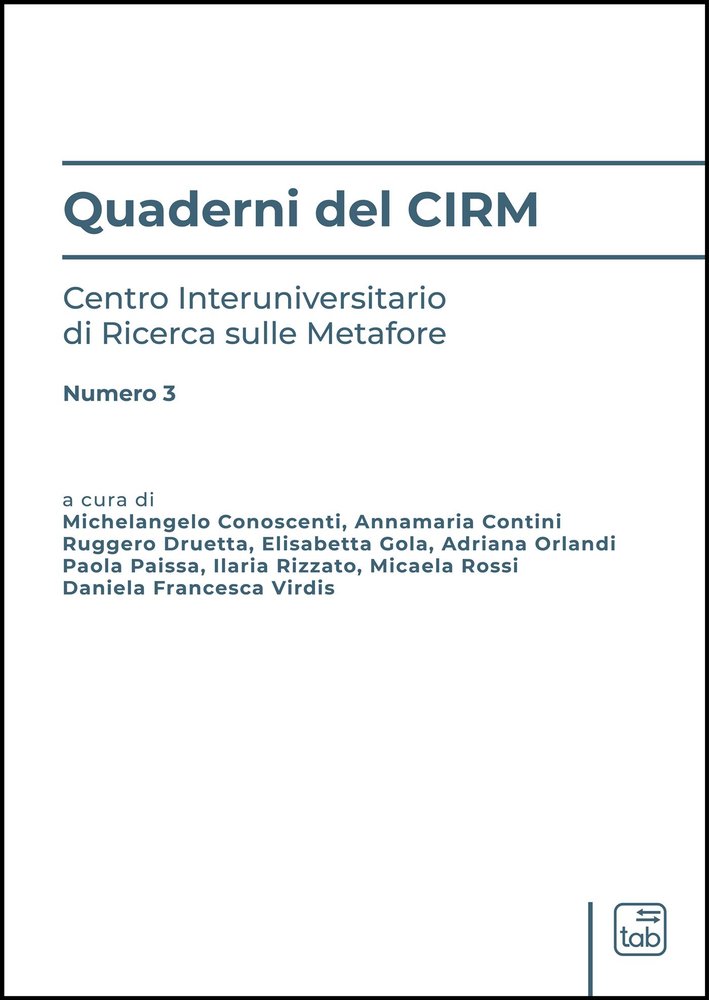Prodotto del nutrito e variegato gruppo di lavoro che costituisce il Centro Interuniversitario di Ricerca sulle Metafore, i Quaderni del CIRM ne rispettano pienamente la natura eterogenea per provenienza disciplinare, interessi di ricerca, punto di vista sulla poliedricità dell'oggetto metaforico. In questo terzo volume viene presentata una parte dei risultati dell'attività del Centro nell'anno 2022, con particolare attenzione per le relazioni tra studi sulle metafore e tecnologie digitali, dall'analisi di corpora multimodali alle metafore presenti nei social media, dalle metafore visive presenti in rete agli strumenti per la traduzione automatica. Come già per i volumi precedenti, questo numero dei Quaderni si distingue per la ricchezza degli apporti e per la varietà, sia per quanto riguarda le lingue e culture esaminate che per quanto concerne la provenienza degli autori e delle autrici.


